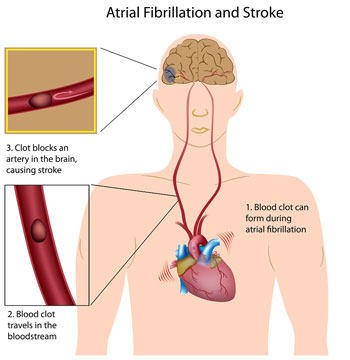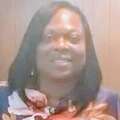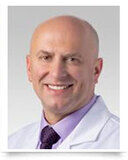Surgeon Q & A: Important Facts About Atrial Fibrillation & Heart Valve Disease with Dr. Vincent Gaudiani
By Adam Pick on March 26, 2013
While heart valve disease can be an isolated diagnosis, it is often accompanied by other conditions including coronary artery disease, aortic aneurysm and atrial fibrillation.
To learn more about atrial fibrillation, I met with Dr. Vincent Gaudiani who has performed successful valve surgery on over 50 patients from our community including Roland Watson, Robert Alvernaz and Karen Weinstein.
I hope that helped you learn more about atrial fibrillation, its causes and treatment options. Many thanks to Dr. Gaudiani for taking the time to share his clinical experience and research with our community.
Keep on tickin!
Adam
P.S. For the hearing impaired members of our community, I have provided a written transcript of this video below.
Dr. Vincent Gaudiani: Hi, there! My name is Vince Gaudiani. I am a Cardiac Surgeon. I have been practicing in the San Francisco Bay area for about the last 30 years. I have done about 10 or 12 thousand open heart operations. At the present time, nearly 90% of what I do has to do with valve surgery and thoracic aortic repairs. The rest is coronary bypass surgery.
Adam Pick: What attracted you to the field of cardiac surgery?
Doctor Gaudiani: Well, you know, the first decision you make in medical school is whether you want to take care of sick people or not, and I always did. And at the time, I came up, cardiac surgery was a wonderful, brand new way to take care of the sickest people. I fell in love with it then. And I am still in love with it.
Adam Pick: Can you explain what A fib (atrial fibrillation) is?
Dr. Vincent Gaudiani: Yes, the heart normally beats, by having the upper chamber squeeze and then the lower chambers — upper chamber, lower chamber. But that squeeze is always preceded by the electrical activation of the atrium and then electrical activation of the ventricle. It is intermittent. Atrial fibrillation occurs when the electrical activation of the atrium becomes continuous. So rather than intermittent squeeze — which is what most of you have, I hope — there is a continuous wiggling of the atrium that can have a very serious consequences to how you will live and how your heart will behave.
Adam Pick: What are the causes of A-fib?
Doctor Vincent Gaudiani: Atrial fibrillation is practically unknown in people who are in their 20’s or 30’s. Atrial Fibrillation occurs more and more commonly as we get older. And it occurs more and more commonly as the atrium stretches, so in valvular conditions that make the atrium enlarge, atrial fibrillation becomes more common.

Adam Pick: Dr. Gaudiani, can atrial fibrillation be harmful to patients?
Dr. Vincent Gaudiani: Yes, there are several bad things about atrial fibrillation. The first is that when the upper chamber quivers, it does not evacuate itself smoothly like it does when you have the regular rhythm and therefore, since there is turbulent flow in the atrium there can be places where the blood is not moving at all. Just like in a trout stream, some places, the water is moving fast, some places, it is stagnant. And where it is stagnant, a clot can form which can of course, then later be released up into your brain and cause stroke. So, that is the first important thing. The second important thing is you lose the fine control of your heart rate, so normally your heart figures out just how much blood to pump. But when you are in atrial fibrillation, sometimes you go too fast, and sometimes you go too slow. The third thing is, when you are in atrial fibrillation, you lose a little bit of horsepower, somewhere between 2 and 10% of horsepower depending on your heart — so you may have less capacity to do work and to move around.
Adam Pick: Are there any analogies you can use that explain what atrial fibrillation is for the patients out there?
Dr. Vincent Gaudiani: One good analogy is that the upper chambers are quivering and the lower chambers are beating irregularly. So that you may feel the effects of the irregular beat which is called heart palpitations and that is frequently the thing that will bring you, the patients, to the attention to physicians.
Adam Pick: Dr. Gaudiani, what can we do to correct atrial fibrillation?
Dr. Gaudiani: Well the first thing to say is that not everybody who has atrial fibrillation needs to be corrected. Many patients who are in atrial fibrillation need to be on an anti-coagulant medication to prevent the clots from forming in their atrium, which can lead to stroke as we mentioned. But being on an anti- coagulant medication can cause other difficulties and in patients to whom those difficulties are likely or in whom they have occurred for instance bleeding into your intestine. Those patients, we would like to get out of atrial fibrillation if possible. That can be done both by catheter-based procedures and by operation, by open heart surgery.
Adam Pick: Can you explain how the surgical techniques fix A-fib?
Vincent Gaudiani, MD: Yes, they are all based from the same fundamental idea and that is, because electrical activity is randomly proceeding through the atrium rather than intermittently proceeding through the atrium. The procedures are design to block the capacity of the atrium to have electricity pass through it. So for instance, if you want to think about it, in a simple way, think about it as the lines in an industrial parking lot where you go to buy groceries for instance. If those lines disappeared, cars would start travelling randomly through the parking lot and it would be dangerous. And if you could not paint the lines right back on, what you might do is put up concrete abutments at various places strategically in a parking lot so that the flow of traffic would be more rational. And that is exactly what these procedures are designed to do by either cutting the atrium with a knife and sewing it up or by burning a little line on it with a catheter a scar forms and the electricity can not jump over the scars. Just the way the cars cannot jump over the concrete abutments so that you can help redirect and make more rational the flow of electricity through the heart. And in about, depending on the procedure, somewhere between 50 and 80% of the time, we can return patients to normal rhythm. In the case of open heart surgery usually associated with either a valve repair or a valve replacement.
Adam Pick: What is your number one piece of advice for someone who has been diagnosed with atrial fibrillation?
Dr. Vincent Gaudiani: Go to somebody, you trust, someone you like and have a nice long conversation. Ask all the questions and don’t be afraid to take a recording device with you or to ask to have another meeting so that you really come to understand this, and if push comes to shove go on to Adam’s website and he will direct you to somebody who knows what they are doing.
|
tony says on March 26th, 2013 at 2:42 pm |
|
i just had vrs with pacemaker my question is i feel pretty good except at night when i lay down my heart starts to race just as i am about to fall asleep drives me crazy.i can make it stop my setting up and coughing.what is causeing this |
 |
|
Michelle says on March 26th, 2013 at 6:36 pm |
|
I recently experienced atrial fibrillation shortly after open-heart surgery to repair my mitral valve. It was extremely scary and fortunately the hospital staff were able to correct the fibrillation with medicine. The news that it could happen again still has me very nervous. |
 |
|
Joseph says on March 30th, 2013 at 5:42 am |
|
Well, I’m shocked! I was doing so, so well after AVR surgery in July, 2011. I was back to playing tennis 14-15 hours a week. Jogging, gym. On Tuesday, I saw my Cardiologist for my 4 month check up and my cardiogram revealed that I have a-fib. Concerned about the possibility of a stroke, he put me on coumadin and I’m also wearing a holter monitor. From competitive singles and doubles tennis, 14/16 hours a week, I’m now in a funk worried about what I may have done to myself. Some say that I may have stretched the atria in my heart from all of the strenuous exercise. Can anyone offer me some advise as to similar experiences? Dismayed, and really funked, Joseph |
 |
|
Jim Campbell says on March 30th, 2013 at 10:41 am |
|
Three years ago I had aortic valve replaced, two years later pacemaker inserted which led to A-Fib and Coumadin and many problems. Oct 2012 had Wolf-Mini-Maze, left atrial appendage removal and now I’m off Coumadin but still have a few A-Fib episodes. |
 |
|
gary b says on April 4th, 2013 at 7:53 am |
|
Hi Adam your your materials have been a great help in dealing with my valve issuei am currently on day 7 after having arortic tissue valve replacement. Iam doing well and at some point would like to share my story. What is the best way to do that. Once again thanks for doing what you do, it really made a difference in my mental state in dealing with my medical.problem. |
 |













